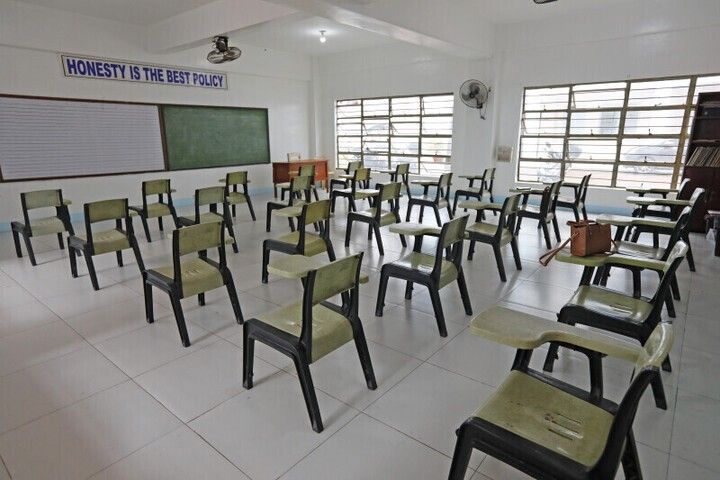Behind Philippines' poor PISA performance: Worst long-term absenteeism in the world

MANILA, Philippines — The Philippines has the highest rate of long-term absenteeism among students compared to all nations, the latest PISA results showed, pointing to one of the factors contributing to the country’s flatlining performance in the international assessment.
Around 30% of students from the Philippines reported having been absent from school for more than three consecutive months at least once in their education, according to the PISA 2022 results. This indicates at least a third of 15-year-old Filipino students missed almost half of the school year at some point in their education.
Highest among all PISA-participating countries with available data, the Philippines’ long-term absenteeism rate is nearly four times higher than the average of all other participating countries (8%).
Beyond poor student attendance, long-term absenteeism also dramatically worsens students’ academic performance as months’ worth of missed lessons tends to balloon to years’ worth of gaps in knowledge, the PISA report noted.
At a press conference last week on the Philippines’ PISA results, the Department of Education noted that students who missed school for more than three consecutive months at some point in their schooling "tended to score lower by 56 score points in mathematics.”
According to OECD estimates, this means that students who missed class for at least three months lose out on nearly three years’ worth of knowledge in mathematics.
The Philippines’ latest PISA scores show that three out of four 15-year-old students fail to meet the minimum proficiency in all subjects of mathematics, reading and science.
With most Filipino students not meeting PISA’s lowest proficiency benchmark, DepEd officials and lawmakers have pinned their hopes on waiting years for education reform to take effect, as well as higher government investments in education.
DepEd Undersecretary Gina Gonong said during last week’s press conference that the high number of students missing class hours can be explained by students’ family problems at home.
“It’s mostly about families,” Gonong said. “And boredom.”
Philstar.com has reached out to DepEd for comment and will update this story with their response.
Reasons
Most or around 58% of Filipino students who reported being absent from school for three consecutive months or more cited the need to care for family members at home, the PISA results showed.
Others stayed away from school due to the need to help out with the "family business or family land" (53%), while others missed school for months due to boredom (45%).
The rest cited reasons such as suffering from illnesses (38%), not feeling safe at school (30%), inability to pay school fees (30%), pregnancy (19%) and suspension due to an offense (19%).
Natural disasters, transpo keep Filipino students from school
Meanwhile, the Philippines has the second-highest percentage of students in Asia who said that school closures due to “natural disasters” or hazardous events forced them to pause their studies 44% — the fourth most cited reason in the country. Macao, China has the highest percentage in Asia at 56%.
A 2023 UNICEF report found the Philippines as one of the worst countries in the world for children in terms of exposure to overlapping climate and envrionmental shocks and stresses.
The UNICEF report said that at least 96% of children in the Philippines face different types of climate-related hazards or stresses, much higher than the global and regional average.
Besides hazardous events, a third or 32% of Filipino students cited transportation problems as one of the factors behind their long-term absence from school.
Globally, the primary reason cited by students who missed school for three consecutive months or more was illness (accounting for an average of 71% across PISA-participating countries). Other reasons included boredom or concerns about safety at school.
The Organization for Economic Cooperation and Development (OECD), which administers the PISA tri-annually, noted: “While schools can do little to prevent illness, they can address a lack of motivation among students, and much can be done to make schools safer.”
“PISA results show that boys and students in lower secondary school are more likely to suffer from a lack of motivation: the two groups cited boredom as a reason for long-term absenteeism more often than girls and students in upper secondary school, on average across OECD countries and in most countries/economies,” the OECD noted.
- Latest
- Trending
































